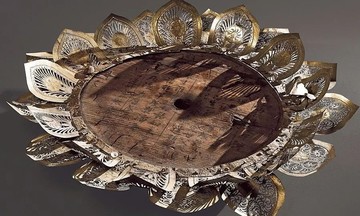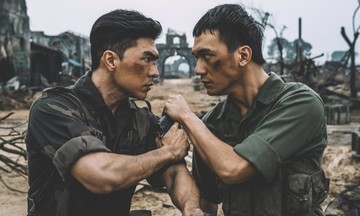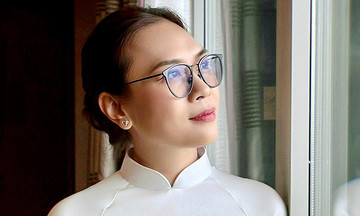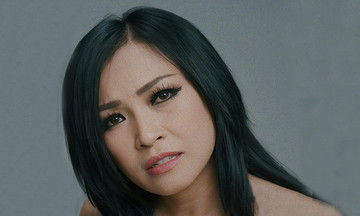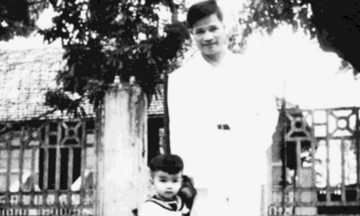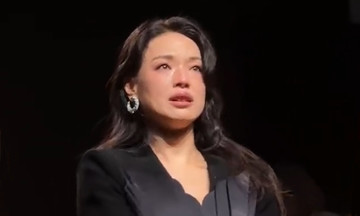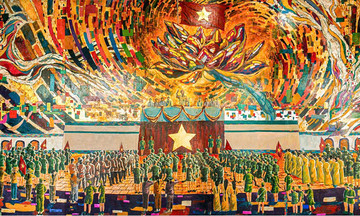The artist passed away on 3/9 at her home at the age of 84. According to screenwriter Nguyen Thi Hong Ngat, in her final years, she had forgotten many things and only recognized close relatives. Every year, her students would gather with her for her birthday and Teacher's Day.
Born in 1941 in Hue, she was the daughter of Pham Khac Hoe, a royal official under Emperor Bao Dai, and Cong Ton Nu Dieu Pham, a granddaughter of Emperor Minh Mang. She inherited her father's love of literature and her mother's sweet singing voice.
At 14, she was introduced to the Central Art Troupe by poet To Huu. She was in the Hoa Binh choir with artist Thai Thi Lien (mother of artist Dang Thai Son), and once went to China to record songs like “Tien Quan Ca”, “Lanh Tu Ca”, and “Hon Tu Si”. At 15, she transferred to the Central Drama Troupe, where she was mentored by master artists such as The Lu, Song Kim, and Mong Long, and performed in the B battlefield.
Aspiring to become a director, after leaving the war zone for Hanoi, she completed her basic cultural studies and passed the entrance exam for the Directing Department at the National Academy of Performing Arts in Moscow, former Soviet Union, studying abroad for seven years. In 1975, “Nhung Chiec Long Hac” (The Feather Cranes), her first play directed as a graduation project, was highly praised by her professors.
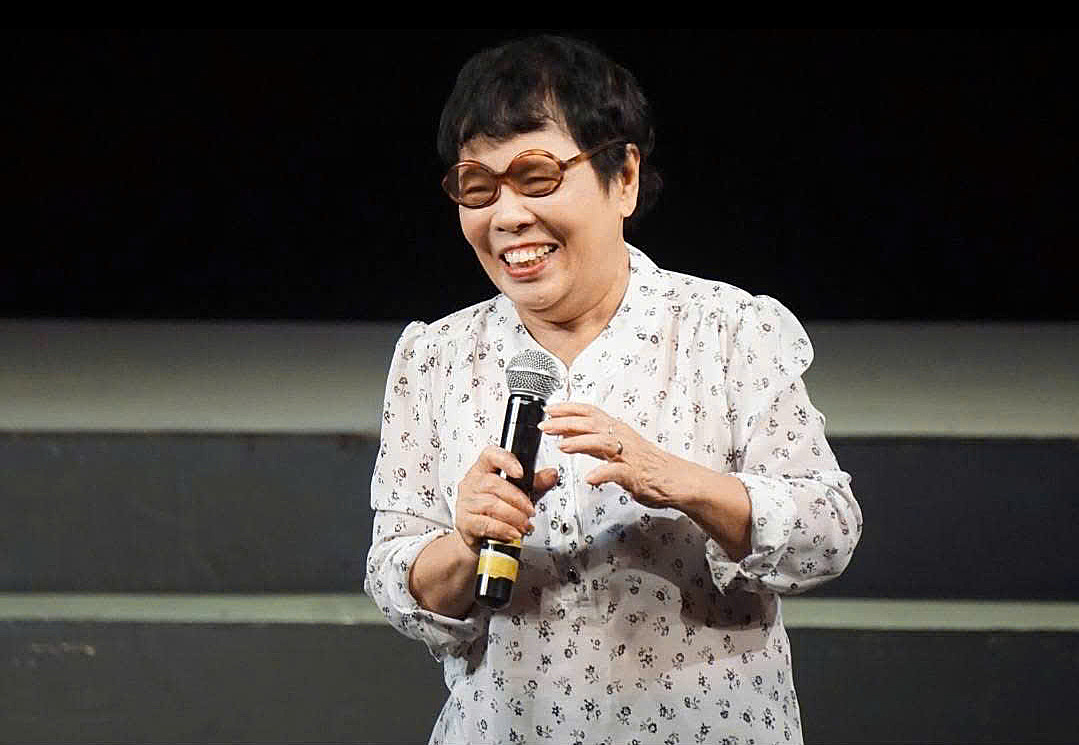 |
Artist Pham Thi Thanh. Photo: Youth Theatre |
Artist Pham Thi Thanh. Photo: Youth Theatre
Director Pham Thi Thanh considered the stage a "sanctuary," dedicating herself to the performing arts for over half a century. Returning to Vietnam in 1977, she wanted to establish an art unit for young people, so she and Ha Nhan - the first female stage director in Vietnam - brainstormed and wrote a proposal. On 10/4/1978, the Youth Theatre was born. Ha Nhan served as the director, and Nguyen Thi Thanh as the deputy director.
She trained many generations of actors at the theatre, the most successful being the first class, with names like Le Khanh, Chi Trung, Ngoc Huyen, Lan Huong, Thu Hang, Anh Tu, and Duc Hai.
Artist Chi Trung recalled, "We were like bewildered fledglings, with only an eagerness for the profession. She taught us our first lessons, from small roles like pirates in “Vao Doi” (Entering Life) to major plays like “Romeo and Juliet” and “Loi The Thu 9” (The 9th Vow)."
Artist Le Khanh said Pham Thi Thanh was like a "second mother", nurturing her on stage. At 18, she was entrusted with the lead role of Juliet in “Romeo and Juliet”, followed by a series of plays, culminating in the role of Dan Thiem in “Vu Nhu To”. In actress Le Khanh's memory, Pham Thi Thanh was sharp, intelligent, youthful, and open-minded. "Having been exposed to Western culture early on, she had an open and modern perspective on many issues and was loved by her students and juniors. At a time when theatres still managed actors quite strictly, she allowed me to act in films outside, as long as I still fulfilled my duties at the theatre," the artist recalled.
Pham Thi Thanh once summarized her experience in "cultivating people": "Having a generation of talented actors depends on the following steps: Good selection, dedicated teaching, and investing a lot of effort. Therefore, when teaching them, I greedily taught many things, from music and painting to theoretical subjects, requiring them to practice Vietnamese plays, both comedies and tragedies. Teaching this way is very laborious, but it creates a long-term foundation for developing talent."
Artist Pham Thi Thanh directed over 200 stage plays, many of which are famous and have influenced later generations, such as “Dinh Cao Mo Uoc” (The Peak of Dreams) by Tat Dat, “Vu Nhu To” by Nguyen Huy Tuong, and “Rung Tre” (Bamboo Forest) by Nguyen Dinh Thi.
In particular, she contributed to the flourishing career of playwright Luu Quang Vu. In 1979, after the Youth Theatre was established, she wanted to stage a play that promoted a beautiful lifestyle for young people in the new era and received the script “Song Mai Tuoi 17” (Forever 17) by journalist Dao Duy Ky. The text had potential but many elements were not suitable. Director Pham Thi Thanh rearranged the structure and came up with the idea of young people listening to an old man recounting stories of the past resistance, wanting to ask a writer with fresh ideas to rewrite it. Painter Phung Huy Binh introduced poet Luu Quang Vu. She gave Vu 30 days to complete the script, but he finished it in just 20. The play became the first production of the Youth Theatre and immediately made a name for itself.
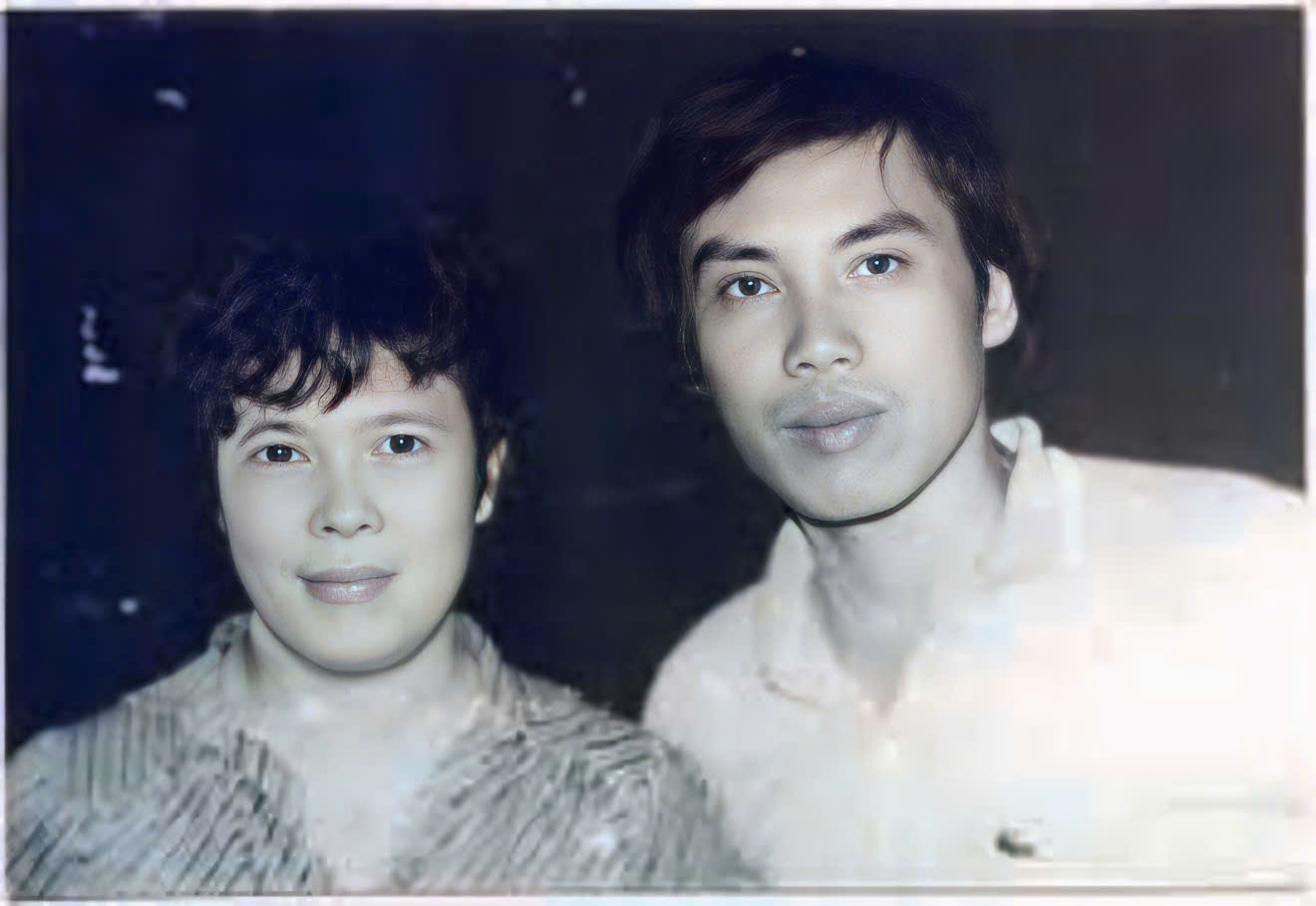 |
Artist Pham Thi Thanh and playwright Luu Quang Vu. Photo: Archives |
Artist Pham Thi Thanh and playwright Luu Quang Vu. Photo: Archives
The artist directed about 24 plays by Luu Quang Vu, the most famous being “Trai Tim Trong Trang” (Pure Heart), “Loi Noi Doi Cuoi Cung” (The Last Lie), “Benh Si” (The Patient), and “Loi The Thu 9” (The 9th Vow). The two were once a "dynamic duo" - Luu Quang Vu wrote the scripts, and Nguyen Thi Thanh directed. Every play they made was a "sell-out."
Both touched on many "hot" issues of the 1980s through works discussing ideals and lifestyles in a period of great change. When staging the play “Neu Anh Khong Dot Lua” (If You Don't Light the Fire), written at the beginning of the subsidy period's dismantling and addressing its dark side, many people advised Pham Thi Thanh to reconsider, to soften the play. Thanh and Luu Quang Vu decided to invite General Secretary Nguyen Van Linh to see it, and he praised it.
People's Artist Lan Huong commented, "Thanh was very astute in directing and choosing plays to make them easily accessible to the audience. Her plays were philosophical but not difficult to understand, not challenging the audience but approachable and relatable." She is considered one of the "four pillars" of northern theatre, alongside directors Doan Hoang Giang, Le Hung, and Doan Anh Thang.
After retirement, she directed many major ceremonies such as the 990th anniversary of Thang Long - Hanoi, the 330th anniversary of Khanh Hoa province, the 100th anniversary of Da Lat, and the Hue Festival. In addition, she participated in many domestic and international projects, striving to promote traditional Vietnamese art forms. According to director Pham Hoang Giang, she laid the foundation for the profession of directing festivals and events in Vietnam.
Many colleagues and students called artist Pham Thi Thanh a "woman of work." During her lifetime, she once said, "Ideally, career and family should have equal meaning, but for me, the worst thing is that I value work more, so my family life wasn't smooth sailing." At 16, she met artist Dao Mong Long, a man who had been through two marriages and was 26 years her senior, in the Viet Bac war zone. Her family opposed their relationship.
When Thanh was 18, they married but only stayed together for 10 years. She once said the breakdown of her marriage was inevitable because when the age gap is too large, at some point, their lives cannot coincide.
In her old age, she lived peacefully with her son and daughter and was content looking back on the past years. In an interview, she said, "Human life is like a flowing river, once it has passed, there are no traces left. I have the theatre as my sanctuary. I have lived my life to the fullest for love and career, and have nothing to regret."
Ha Thu



